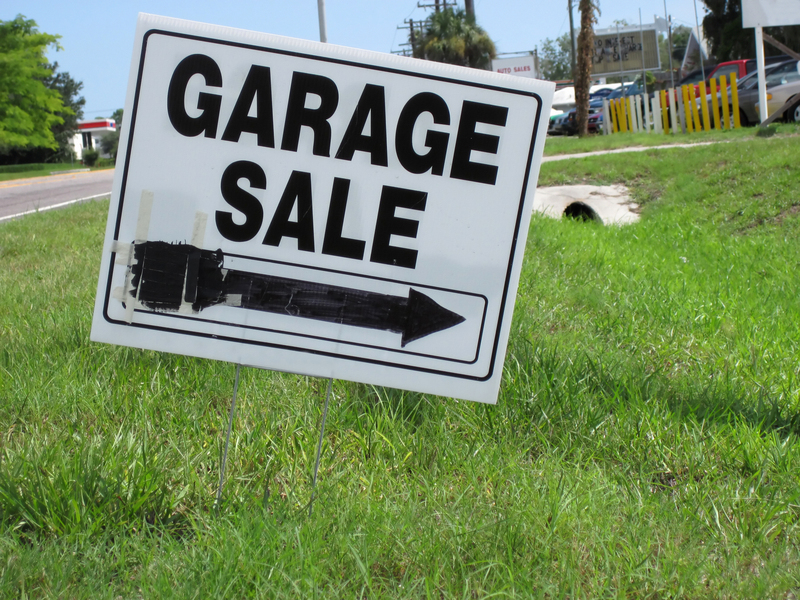Action-Driven Approaches to Lower Home Waste
Reducing waste at home is rapidly becoming a crucial responsibility as the world faces increasing environmental challenges. Modern lifestyles often lead to excessive consumption and waste generation, but with practical, action-oriented strategies, households can significantly lessen their environmental footprint. This comprehensive guide explores a range of action-driven approaches to lower home waste, provides actionable tips, and highlights the broader benefits of sustainable household habits.

Why Reducing Domestic Waste Matters
Households produce a significant proportion of municipal solid waste. Much of this waste ends up in landfills, releasing greenhouse gases, contaminating groundwater, and squandering resources. By minimizing household waste, not only do you contribute to a healthier environment, but you also save money and foster a more sustainable community.
- Lowering home waste cuts down on landfill overflow.
- Reduces the need for resource extraction and energy use.
- Prevents pollution in local ecosystems.
- Encourages mindful consumer habits.
Assessing Your Household Waste
Conduct a Waste Audit
The first step in adopting action-driven strategies to reduce home waste is understanding your current waste patterns. A waste audit helps you pinpoint your biggest waste sources and develop targeted interventions.
- Collect one week's worth of rubbish and recycling.
- Sort and categorize: food scraps, plastics, paper, glass, and hazardous waste.
- Measure quantities and identify recurring patterns.
- Reflect on what items can be reduced, reused, or eliminated entirely.
Top Action-Driven Tactics to Reduce Household Waste
1. Smart Shopping Choices
- Plan meals in advance to avoid impulse buys and food spoilage.
- Bring reusable shopping bags and produce sacks to minimize plastic use.
- Select products with minimal or recyclable packaging.
- Buy in bulk where practical, reducing single-use packaging.
Pro tip: Shop local farmers' markets--it often means less packaging and fresher produce!
2. Optimize Food Usage and Composting
- Store food correctly to extend freshness (e.g., use airtight containers).
- Implement a "first in, first out" system in the fridge and pantry.
- Get creative with leftovers and follow "root-to-stem" cooking.
- Set up a home compost bin for fruit, vegetable scraps, coffee grounds, and eggshells.
Composting not only diverts organic waste from landfills but also provides nutrient-rich soil for your garden or houseplants.
3. Switch to Reusables
- Replace single-use items like water bottles, coffee cups, and utensils with reusable versions.
- Opt for cloth napkins and rags instead of paper towels.
- Use glass or stainless steel food storage containers.
- Install a water filter and use refillable bottles rather than buying bottled water.
4. Repair, Repurpose, and Upcycle
- Fix broken appliances, furniture, and clothes instead of discarding them.
- Repurpose glass jars for storage, vases, or organizing supplies.
- Upcycle old t-shirts into cleaning rags or reusable shopping bags.
- Donate usable items to local charities or offer them on online swap groups.
5. Practice Mindful Consumption
Before making a purchase, ask yourself:
- Do I really need this item?
- Is there a more sustainable alternative available?
- Can I borrow, rent, or buy second-hand instead of new?
These questions can help curb unnecessary consumption and lead to lasting waste reduction at home.
The Importance of Recycling--And How to Do It Right
Effective recycling complements proactive efforts to lower household waste. However, recycling systems can be confusing--incorrectly recycled items often contaminate whole batches, sending them to landfill.
- Read your local council's recycling guidelines.
- Rinse containers to prevent food contamination.
- Flatten cardboard boxes for efficient transportation.
- Keep plastic bags and films out--they clog recycling machinery.
Where possible, participate in special collection programs for electronics, batteries, hazardous waste, and soft plastics. These initiatives divert complex waste from landfill and recover valuable materials.
Zero-Waste Lifestyle: Advanced Steps to Lower Home Waste
If you're ready to go beyond basic reductions, consider gradual adoption of zero-waste living principles:
- Make your own cleaning and personal care products to avoid packaging.
- Use refill stations for everything from detergent to shampoo.
- Choose second-hand and vintage over new whenever possible.
- Switch to bar soap and unpackaged goods.
- Engage your family in monthly waste-reduction challenges for motivation.
Action-Driven Approaches for Specific Waste Streams
Cutting Down Plastic Waste
- Purchase foods in glass, metal, or cardboard instead of plastic whenever feasible.
- Invest in silicone food bags instead of single-use plastic sandwich bags.
- Say no to plastic straws, lids, and cutlery--use reusables.
- Consider plastic-free cleaning tools such as wooden scrubbers and natural bristle brushes.
Managing Textile and Clothing Waste
- Buy quality garments designed for longevity, not fast fashion.
- Sew or patch worn clothes rather than discarding them.
- Organize wardrobe swaps with friends or local groups.
- Repurpose old towels and sheets for cleaning or crafts.
Decluttering Electronic and Hazardous Waste
- Drop off obsolete electronics at e-waste recycling centers.
- Take spent batteries, paints, and chemicals to appropriate facilities.
- Donate usable electronics for refurbishment or community projects.
Encouraging Family and Community Involvement
Engage All Household Members
- Assign specific waste-management roles to each family member.
- Get children involved with home composting and recycling games.
- Share progress and celebrate milestones as a family.
Join or Start Neighborhood Initiatives
- Set up local "freecycle" groups for swapping and sharing items.
- Organize community clean-up events or repair cafes.
- Advocate for better recycling and composting programs in your area.
Utilizing Technology to Lower Household Waste
- Use apps to track food inventory and shopping lists, minimizing duplicates and unnecessary purchases.
- Digital banking and e-statements reduce paper clutter.
- Buy or sell pre-owned items on neighborhood resale platforms.
- Access digital publications and eBooks to cut down on paper waste.
The Financial and Environmental Benefits of Reducing Home Waste
Action-oriented home waste reduction isn't merely an ethical decision--it's also economically savvy.
- Lower grocery bills through meal planning and less food waste.
- Reduced spending on single-use products.
- Potential income from selling or donating used items.
- Lowered waste collection fees and landfill taxes in some communities.
- Support for local producers and the circular economy.
Environmentally, every step taken towards minimizing household waste helps:
- Conserve natural resources.
- Reduce landfill methane emissions, a potent greenhouse gas.
- Prevent pollution of water, soil, and air.
- Promote biodiversity by protecting habitats from contamination and excessive resource extraction.
Overcoming Common Challenges in Lowering Residential Waste
While the intention to lower household waste is commendable, implementation can be challenging. Here are ways to tackle obstacles:
- Lack of time: Batch-cook meals, schedule regular "declutter" days, and automate shopping lists.
- Limited recycling facilities: Advocate for improvements, and seek out drop-off points or community-led recycling hubs.
- Family resistance: Start with small, visible wins and educate through documentaries, books, or hands-on activities.
- Cost concerns: Many sustainable changes, like using reusables, pay off over time. Start with no-cost actions, such as buying less and reusing more.

Developing a Personalized Action Plan
No single solution fits everyone. The best strategy is to start with what's practical, and build from there. To lower home waste substantially:
- Set clear, achievable goals--e.g., "Reduce kitchen waste by 30% in three months."
- Track progress and adjust tactics as your household gains momentum.
- Celebrate successes and share tips with friends and neighbors for a positive ripple effect.
Conclusion: The Power of Action-Driven Approaches to Lower Home Waste
Embracing action-driven methods to reduce home waste is an empowering step towards sustainable living. From conscious shopping, mindful consumption, and family participation, to the power of technology and community action, small changes add up to significant impacts. Start with an honest assessment of your current habits, commit to practical improvements, and invite others to join you on this eco-friendly journey. In doing so, you'll not only lower household waste, but also foster a healthier planet for generations to come.
Ready to make a difference? Begin your action-driven journey today--every step counts!